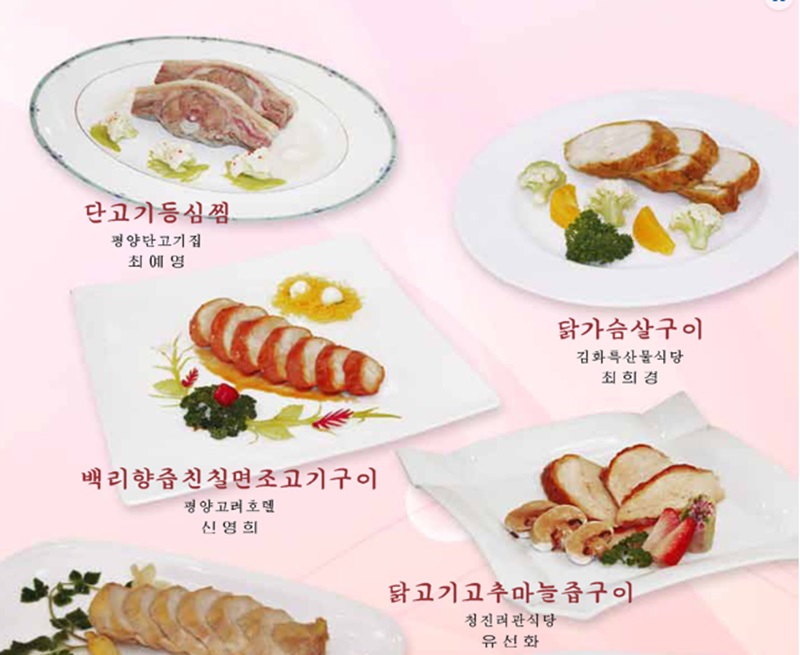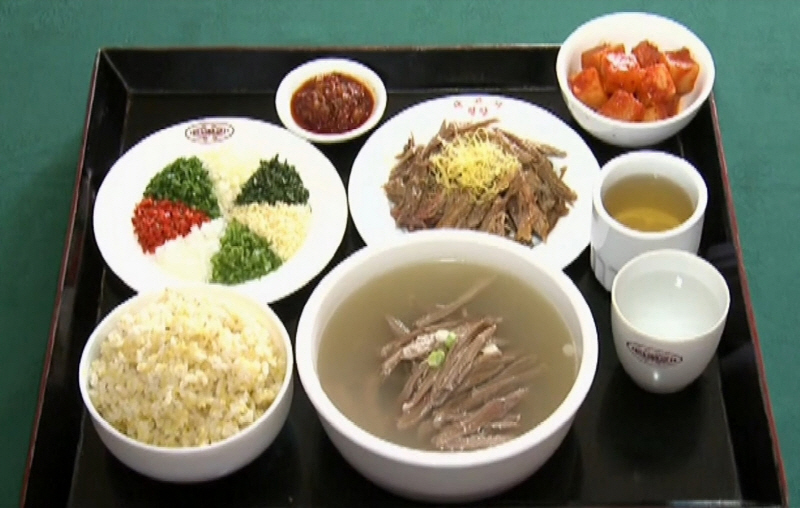In South Korea, the consumption of dog meat is legally prohibited, but in North Korea, it remains a celebrated “traditional dish” and is particularly popular as a summer delicacy.
The quarterly magazine published by North Korea’s “Korean Association of Cooks,” recently unveiled a list of newly registered famous North Korean dishes and restaurants. Notably, the only dish to be recognized in the prestigious “Famous Cuisine” category was Pyongyang Tangogi Restaurant’s Tangogi Sirloin Stew.
In North Korea, dog meat is referred to as “Tangogi,” with “gogi” meaning meat. The term “tan” translates to sweet, according to their belief that dog meat has a sweet flavor, which they argue becomes richer the longer it is chewed.

An article titled “The Day We Realized True Patriotism” in this year’s second quarter issue of the magazine reported that workers from Pyongyang Tangogi Restaurant were summoned by then National Defense Commission Chairman Kim Jong-il, current leader Kim Jong-un’s father, in March 2010 to present their dog meat dishes, which received high praise. The article noted that Kim Jong-un accompanied his father at that time and also lauded the dog meat dishes.
The magazine further reported that a month later, in April, the Kim family once again visited the restaurant, expressing great satisfaction with the food, gifting the workers, and taking commemorative photos.
The magazine claimed that the reason dog meat has solidified its status as a “traditional dish” is thanks to the past leaders.
The magazine emphasized, “A nation’s traditional cuisine embodies its history, culture, and future. Today’s attitude towards these traditions can be seen as a litmus test distinguishing true patriotism from betrayal.”

Reflecting this sentiment, a “National Tangogi Cooking Contest” was recently held. The Workers’ Party’s official newspaper, Rodong Sinmun, recently reported that the competition took place over four days starting from July 22 on Ryomyong Street in the capital, Pyongyang.
“In the contest, the jury evaluated Tangogi soups and other Tangogi dishes made by cooks of different units within a set time on the spot,” the article read. “There was also an experience-sharing meeting with the attendance of cooks from the Pyongyang Tangogi Restaurant. Diplomas, medals, and certificates were awarded to the successful units and cooks.”
BY YOUNGNAM KIM [kim.youngnam@koreadaily.com]


![Green card interviews used as decoy for ICE arrests U.S. Immigration and Customs Enforcement (ICE) agents arrest a man after a hearing at an immigration court in Manhattan, New York, on Oct. 27. [REUTERS]](https://www.koreadailyus.com/wp-content/uploads/2025/12/1226-ICE-100x70.jpg)

